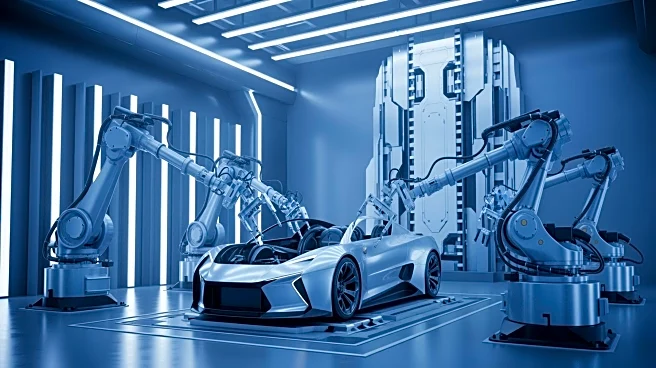What's Happening?
Nissan has announced a three-year extension of its strategic partnership with Monolith, a company specializing in AI-driven engineering software. This collaboration aims to revolutionize the vehicle development
process by reducing the reliance on physical tests. The partnership is part of Nissan's global recovery plan, RE:Nissan, which focuses on accelerating product delivery to customers by shortening vehicle development time and enhancing innovation and operational efficiency. Monolith's AI technology, initially used to validate testing on the Nissan LEAF, will now be applied to a broader range of tests for future models in Europe. By leveraging over 90 years of vehicle testing data, the AI system can accurately predict physical test outcomes, thereby streamlining the development process and allowing engineers to concentrate on problem-solving and decision-making. The partnership has already demonstrated a 17% reduction in physical testing, with potential to halve testing time across Nissan's European vehicle range.
Why It's Important?
The extension of the partnership between Nissan and Monolith signifies a significant shift in the automotive industry towards integrating AI to enhance efficiency and innovation. By reducing the need for physical prototypes, Nissan can cut development time and resource use, accelerating its time to market. This approach not only supports Nissan's commitment to innovation and sustainability but also positions the company to better compete in the rapidly evolving automotive market. The use of AI in engineering processes could lead to cost savings and improved product quality, benefiting both the company and its customers. As AI continues to play a central role in vehicle design and testing, it could set a precedent for other automakers to follow, potentially transforming industry standards.
What's Next?
As the partnership progresses, Nissan plans to apply Monolith's AI technology to more tests for future vehicle models. This could lead to further reductions in development time and resource use, enhancing Nissan's ability to bring new products to market more quickly. The success of this collaboration may encourage other automotive companies to adopt similar AI-driven approaches, potentially leading to widespread changes in vehicle development processes. Stakeholders, including engineers and industry leaders, will likely monitor the outcomes closely to assess the broader implications for the automotive sector.









